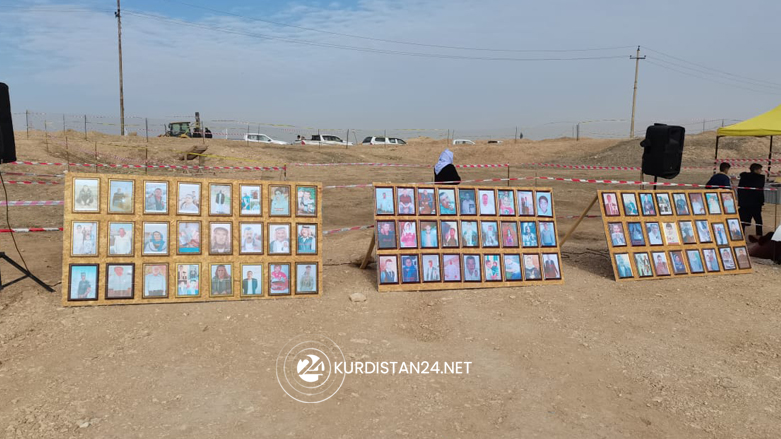Significant increase in number of ISIS mass graves in Iraq: UNITAD

ERBIL (Kurdistan 24) – The head of the United Nations Investigative Team to Promote Accountability for Crimes Committed by Da'esh/Islamic State (UNITAD), Christian Ritscher, indicated on Thursday that there has been a significant increase in the number of ISIS mass graves in Iraq.
The statement came on the sidelines of a conference on ISIS held by the German Foreign Ministry in Berlin to discuss the issue of "financial flows of extremists."
During the conference, Ritscher said that "these graves are important evidence from which to conclude the number of people killed by ISIS" and stressed that "the international investigation team is in a race against time, because the graves are subject to natural influences."
He added that "the use of the money path is possible to determine who is behind the methodology of these many brutal crimes," stressing the need to "bring those involved in planning these crimes, even at the leadership levels, to trial."
"The war crimes committed by ISIS were organized with a high degree of bureaucracy," Ritscher said. "These were not isolated actions, it seems that it was planned, and this is also evident from the display of the graves."
He pointed out that "everything indicates that the senior ISIS leadership were also aware of what was happening on the front" and noted that "ISIS left behind a huge number of documents, which will now be digitized and evaluated in full swing."
The former German Federal Prosecutor, Ritscher, has headed the investigation team of UNITAD based in Baghdad since September 2021.
ISIS conquered almost a third of Iraq in the summer of 2014. Baghdad declared its "final victory" over the group in 2017. Despite this, ISIS sleeper cells remain in Iraq, particularly in the disputed territories between Erbil-Baghdad.
